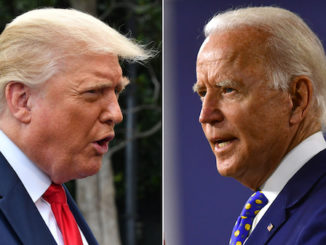
Two issues have returned to dominate American political discourse with renewed vigor—tariffs and immigration. For President Donald Trump and his inner circle of advisors, the latter has once again become a rallying cry. Rhetoric around “protecting American jobs” and “securing our borders” fills the airwaves, but this well-worn political drumbeat continues to ignore an enduring and essential truth: America was built by immigrants—and it still needs them.
Let us not forget that those in power today are descendants of immigrants—many of whom arrived under far more chaotic and desperate circumstances than those they now seek to shut out. The United States of America has never been an island for a single race, religion, or ideology. It is a mosaic, defined by the struggles and triumphs of those who left everything behind to make a new life here. And it is precisely these people—immigrants—who have given America its strength, resilience, and global leadership.
The American story is inseparable from the immigrant story. From the Irish fleeing famine, to Italians seeking work, to Jews escaping persecution, to South Asians, Latin Americans, Africans, and East Asians pursuing the American Dream—the lifeblood of the nation has flowed from across the seas.
Today, immigrants make up nearly 14% of the U.S. population, amounting to over 45 million people, according to the Pew Research Center. Add their U.S.-born children, and the number rises to over 80 million—about one-fourth of the entire population. This is not a fringe demographic. This is America.
Immigrants disproportionately fill essential roles in American society:
Health Care: According to the Migration Policy Institute, immigrants make up 17% of all health care workers, including 28% of physicians and 38% of home health aides.
Agriculture: An estimated 73% of agricultural workers in the U.S. are foreign-born. These are the individuals who pick our fruits and vegetables, often under grueling conditions.
Construction: Roughly 25% of construction laborers are immigrants, keeping our infrastructure standing and expanding.
Technology: In Silicon Valley, over 45% of tech start-ups are founded by immigrants or their children. Think Google (Sergey Brin), Tesla (Elon Musk), and eBay (Pierre Omidyar).
Without immigrants, hospitals would falter, food supply chains would break, infrastructure would stall, and innovation would dry up.
Contrary to populist fear-mongering, immigrants are not a burden on the American economy—they are an asset.
A 2016 study by the National Academies of Sciences, Engineering, and Medicine found that immigration has an overall positive effect on long-term economic growth. First-generation immigrants may consume more public benefits initially, but their children—U.S.-born—contribute more in taxes than they receive in benefits over a lifetime.
Moreover, immigrant-owned businesses employ over 8 million Americans, according to the American Immigration Council. As of 2021, immigrants made up 20% of all entrepreneurs in the country. They are not taking jobs—they are creating them.
The notion that America will benefit by keeping out low-skilled immigrants is equally flawed. A so-called “gold card” system—where only the wealthy or highly educated are admitted—may sound appealing on paper, but who will do the hard, unglamorous work that keeps cities, farms, restaurants, and households running?
It certainly won’t be the financiers or tech moguls. America runs on the labor of millions—often undocumented—who clean hotel rooms, deliver groceries, wash dishes, and build homes. To pretend otherwise is willful blindness.
The irony of current immigration crackdowns is that they are coming at a time when America faces a looming labor shortage.
According to the U.S. Chamber of Commerce, there are more than 9 million job openings across the country with only about 6 million unemployed workers to fill them. The mismatch is even starker in labor-intensive sectors like agriculture, hospitality, elder care, and manufacturing.
As birth rates fall and baby boomers retire, the U.S. needs a replenished workforce. Without immigration, America will not only struggle to fill jobs—it will lose its competitive edge globally. China, India, and the EU are surging ahead in population-driven growth and innovation. America risks falling behind not because it is overrun by immigrants, but because it is turning them away.
Policy debates often reduce immigration to numbers. But immigration is also about people—families, dreams, and sacrifices.
Many of today’s immigrants arrived legally, worked tirelessly, paid taxes, and raised children who are now first responders, soldiers, doctors, and teachers. Yet they are dismissed, criminalized, or detained as if they are a threat.
Take the case of DACA (Deferred Action for Childhood Arrivals), which protects over 600,000 Dreamers—young people brought here as children through no fault of their own. They grew up American, but face constant uncertainty about their status. They are nurses, engineers, and students—yet treated as pawns in political games.
What does it say about us as a nation that we rip apart families, detain asylum seekers, or deny refuge to those fleeing violence, while continuing to benefit from their labor?
It’s not just bad policy—it’s inhumane.
No one disputes that the U.S. immigration system is broken. But the answer is not mass deportations or xenophobic walls. The answer lies in comprehensive, bipartisan immigration reform.
We need:
- Pathways to citizenship for undocumented workers who have built lives here.
- Fixes to legal immigration channels, which are mired in bureaucracy and long wait times.
- Support for asylum seekers and better resources to process cases humanely.
- Visa reforms that reflect real labor market needs—especially in agriculture, caregiving, and construction.
Unfortunately, immigration policy has become the political football of our times. Presidents sign executive orders. Courts overturn them. Congress remains gridlocked. Meanwhile, the people—the immigrants—wait in limbo.
Let Congress step up—not as Republicans or Democrats, but as Americans. Let them look beyond short-term politics and see the human and economic reality. Immigration reform is not about “them”—it’s about us.
Will we be the nation that values diversity, hard work, and the contributions of all people? Or will we be a country that closes its doors in fear, and in doing so, turns its back on the very ideals it was founded upon?
President Trump may seek to throw out millions of immigrants—but can America survive without them?
Let us not find out the hard way.
A Nation Built by Immigrants Must Not Be Broken by Intolerance.
America’s greatness does not lie in homogeneity, but in its embrace of diversity. The laborers in the fields, the waiters in the diners, the nurses in the ICUs, and the engineers in Silicon Valley—they are all America.
If we truly want to “Make America Great Again,” we must remember who made America great in the first place—immigrants.
The machinery of immigration needs fixing—but not at the cost of those who keep the machine running.
Immigrants are the Lifeblood of America’s Past, Present, and Future. It is time we honored them—not just in words, but in policy. Time for Congress to act. Time for compassion to trump cruelty. Time to reclaim the soul of America.





Be the first to comment